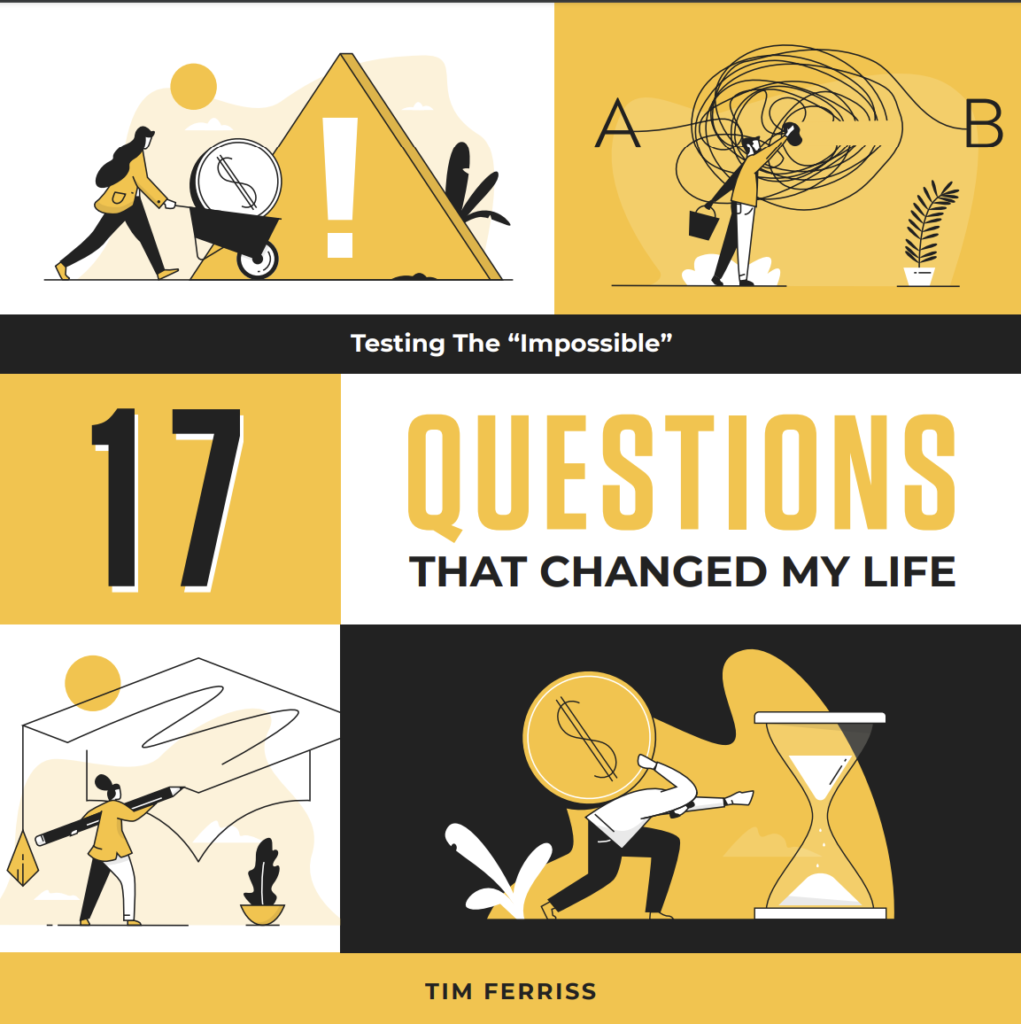
Tim Ferris' 17 Questions: The 2-minute Review. TL;DR
Who is Tim Ferriss according to Wikipedia?
https://en.wikipedia.org/wiki/Tim_Ferriss.
Not to be confused with the science writer Timothy Ferris.
Tim is the New York Times best selling author has written five books:
- The 4-Hour Workweek (2007, expanded edition 2009),
- The 4-Hour Body (2010),
- The 4-Hour Chef (2012),
- Tools of Titans (2016), and
- Tribe of Mentors (2017).
He also has a very popular podcast The Tim Ferriss Show and is now a successful angel investor, having been associated with StumbleUpon, Posterous, Evernote, DailyBurn, Shopify, Reputation.com, Trippy, TaskRabbit and Uber.
What are the 17 Questions?
The 17 Questions are the ones that help him make important decisions. They can be found at his blog: tim.blog where he has a free downloadable 19 page ebook. The ethos of which is that ‘impossibles’ are really social constructs that we can choose to break at any time. Here are the 17 questions that changed his life at different periods in his past to where he is now:
Question 1: What if I did the opposite for 48 hours?
Question 2: What do I spend a lot of money on? How might I scratch my own itch?
Question 3: What would I do if I had $10 million? What’s my real target monthly income?
Question 4: What are the worst things that could happen? Could I get back here?
Question 5: If I could only work 2 hours per week on my business, what would I do?
Question 6: What if I let them make decisions up to $100? $500? $1,000?
Question 7: What’s the least crowded channel?
Question 8: What if I couldn’t pitch my product directly?
Question 9: What if I created my own real-world MBA?
Question 10: Do I need to make it back the way I lose it?
Question 11: What if I could only subtract to solve problems?
Question 12: What might I put in place to allow me to go off the grid for 4 to 8 weeks, with no phone or email?
Question 13: Am I hunting antelope or field mice?
Question 14: Could it be that everything is fine and complete as is?
Question 15: What would this look like if it were easy?
Question 16: How can I throw money at this problem? How can I waste money to improve the quality of my life?
Question 17: No hurry, no pause.
The ‘so what’ for me?
In testing these questions out on your own situations, you will find some new ways of thinking about old problems that may have not been cracked or may have presented obstacles in your life’s journey. While not a full proof formula, these questions may help to break down problems into more manageable bites to get you going in at least a progressive direction
Try them out and let us know how it worked or didn’t work for you.